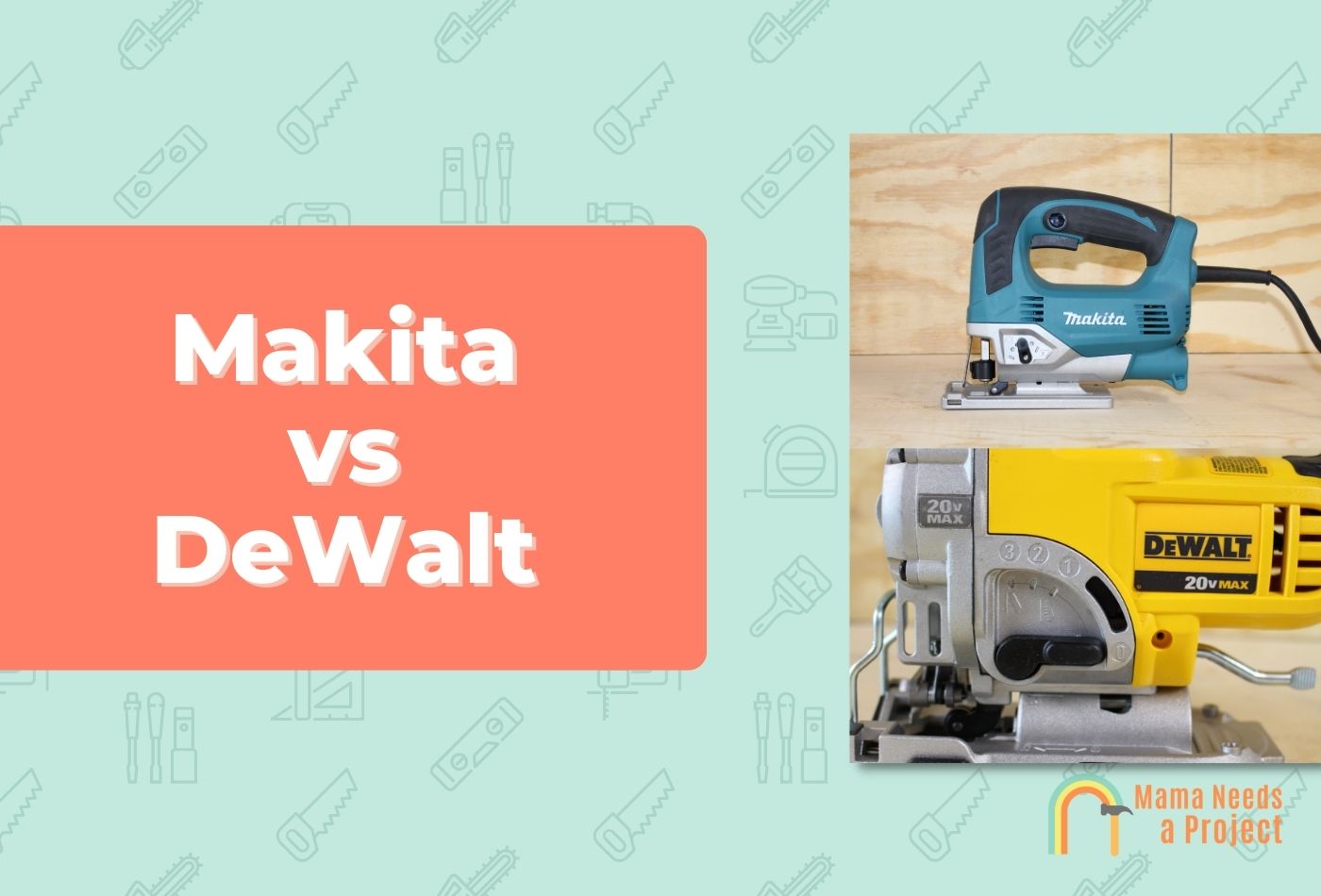Makita vs DeWalt: Which Tools Are Better? (2024 Comparison)
These days, hundreds of brands are operating in the power tool industry, yet two names still stand out as being synonymous with quality, even after all these years: Makita and DeWalt.
Since both brands have been manufacturing all kinds of tools for many decades, they’ve been compared numerous times by those who want to know, conclusively, which brand is best overall.
I’ve used both of these tools brands for years and have some strong thoughts on each.
In this article, I’ll thoroughly examine Makita tools and DeWalt tools, and I compare them according to a range of factors to determine which is ultimately superior. Let’s begin!
- Makita products are manufactured with top-quality components and designed to be long-lasting, efficient, and easy to use. For these reasons, most specialized trades regard them as superior to DeWalt products.
- But DeWalt’s product line is much bigger, and their tools run on stronger batteries. Therefore, which is best is really dependent on what tasks you aim to complete.
- Both tool brands make excellent products that are the best of the best in terms of quality. They compete with other top brands like Milwaukee.
Makita vs DeWalt Power Tools
Quality & Reliability
Makita and DeWalt both use quality components and innovative manufacturing processes to construct their tools, so reliability is the last thing you should have to worry about when operating a Makita or DeWalt tool.
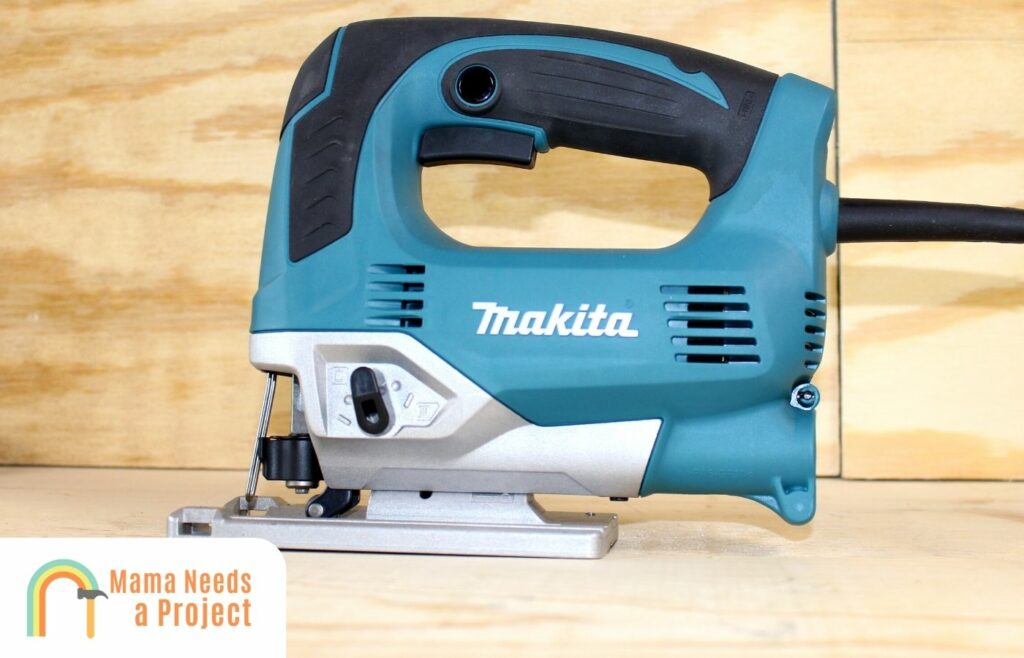
That said, Makita tools are made with highest-quality components, and they take longer to manufacture because a lot of the components are assembled by hand to ensure seamless operation.
That’s not to say that DeWalt tools are low quality by any means. In fact, they are one of the best power tool brands you can buy.
Overall, I prefer Makita tools just slightly more than DeWalt tools – but it isn’t by a ton. Specifically, the corded Makita tools tend to have a better build quality than DeWalt.
When it comes to cordless tools, however, I’d give DeWalt a very slight edge.
Product Lineup
Both Makita and DeWalt manufacture a wide variety of power tools, but some tools are more associated with one brand than the other.
For example, Makita has their flagship cordless miter saws, and their sanders are sought-after too.
DeWalt, on the other hand, is known for their saws, drills, and other cutting tools.
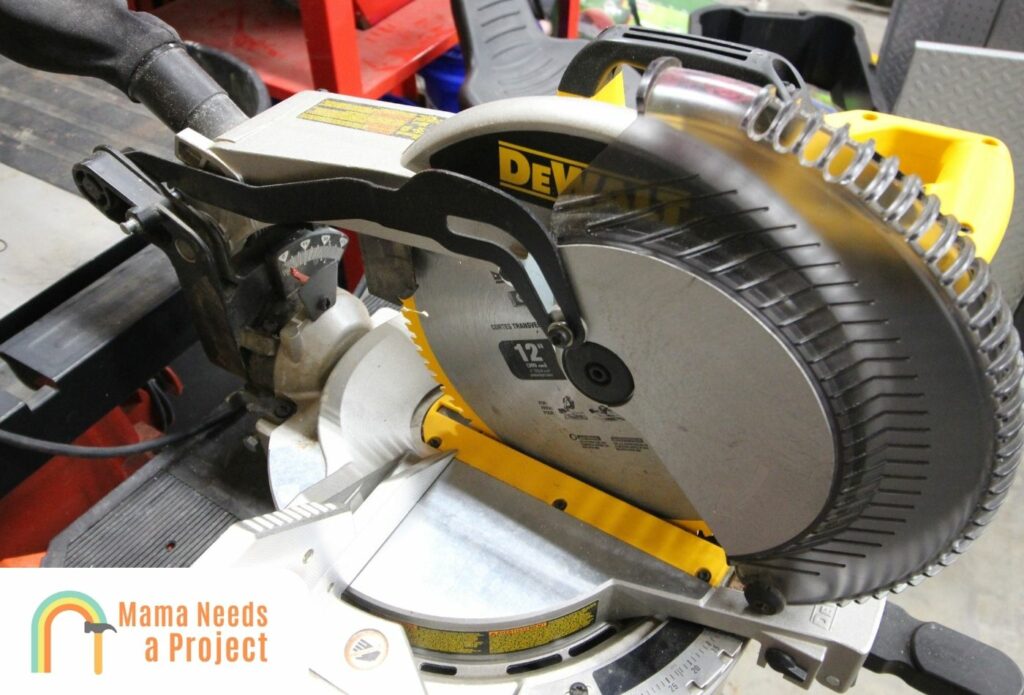
DeWalt circular saws, for example, are more capable than Makita circular saws, mainly because Makita tools tend to disappoint when you have to run them for a long time without interruption.
So if a cordless drill is what you’re after, consider a Makita hammer drill. And when you need a new circular saw, DeWalt saws won’t let you down.
Features
Most Makita and DeWalt products have features that not only make operation safer but easier too, and many of their portable power tools have features that can greatly reduce how much time you spend working.
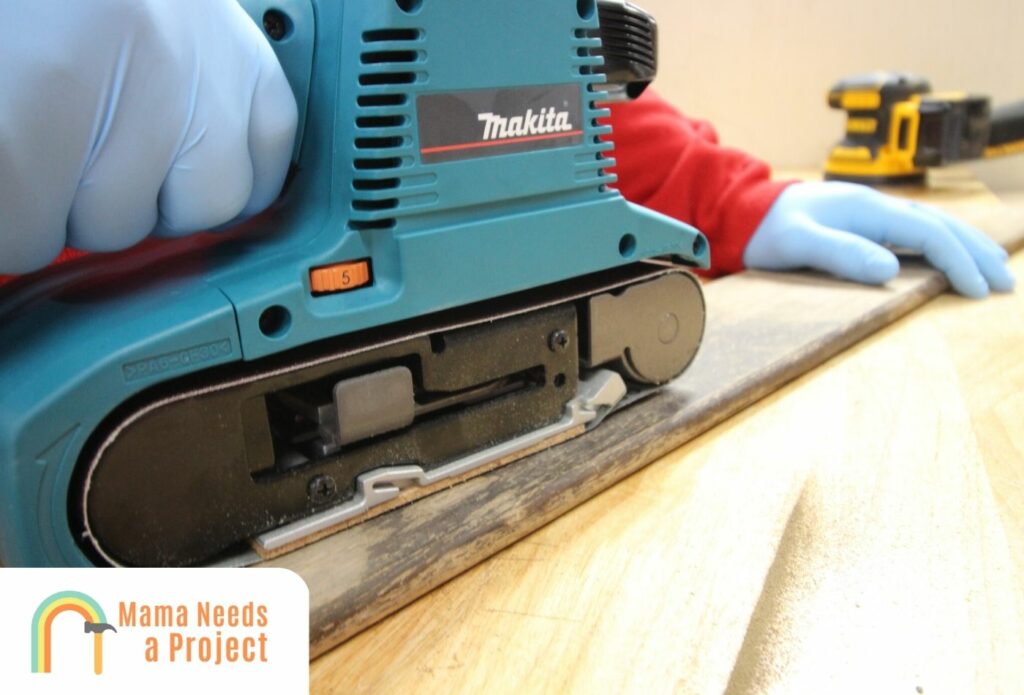
But when you consider all the products both companies manufacture, it’s clear Makita’s have more features. Put differently, a Makita product will have more features than its direct DeWalt counterpart.
And while the average DeWalt power tool may have plenty of features, sometimes they can be too complex and therefore more trouble than they’re worth.
Some of DeWalt’s products have great safety features that I really appreciate. For example, their table saws have a large stop button that makes it easy to stop in case of an emergency.
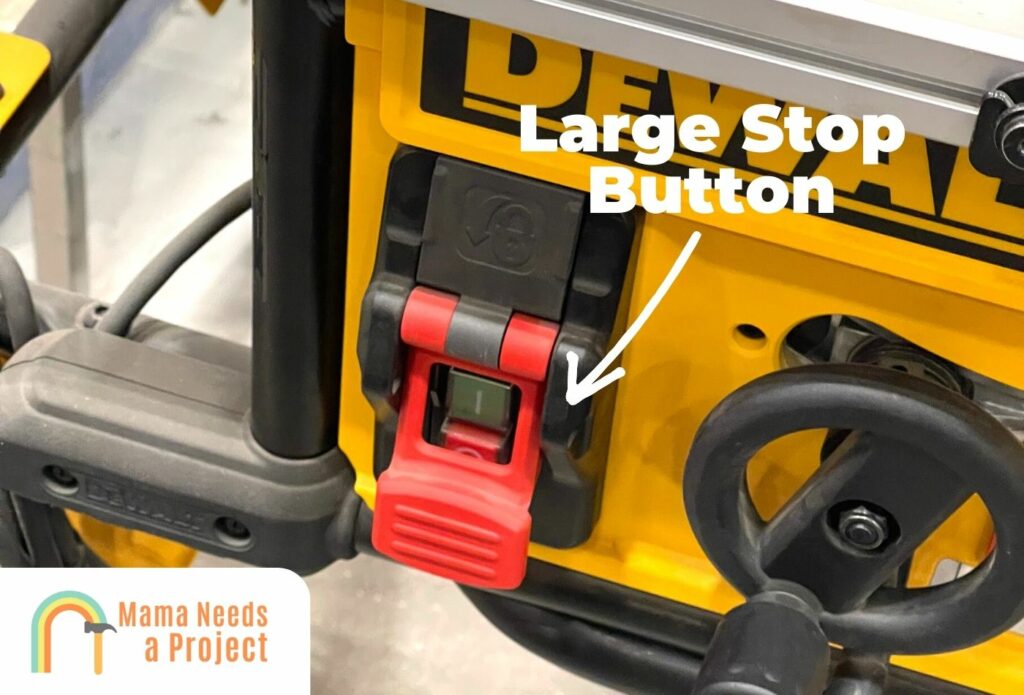
Ease of Use
To be fair, a lot of Makita and DeWalt power tools are a little too complex for hobbyists and DIYers, but most of the tools these brands manufacture can be used successfully whether you’re an experienced tradesperson or not.
But if I had to pick one brand, I’d go with Makita, since their products are simpler and they come with detailed instructions that are easy to understand.
DeWalt products aren’t harder to use, per se, but many of them have unnecessary components that inhibit them from achieving top-notch results consistently.
Cordless Tools & Batteries
Both brands are known for their portable electric power tools, but DeWalt equips their tools with batteries that are more powerful than Makita’s.
Specifically, most tools which carry the DeWalt brand run on a 20V battery, whereas the average Makita tool runs on an 18V battery.
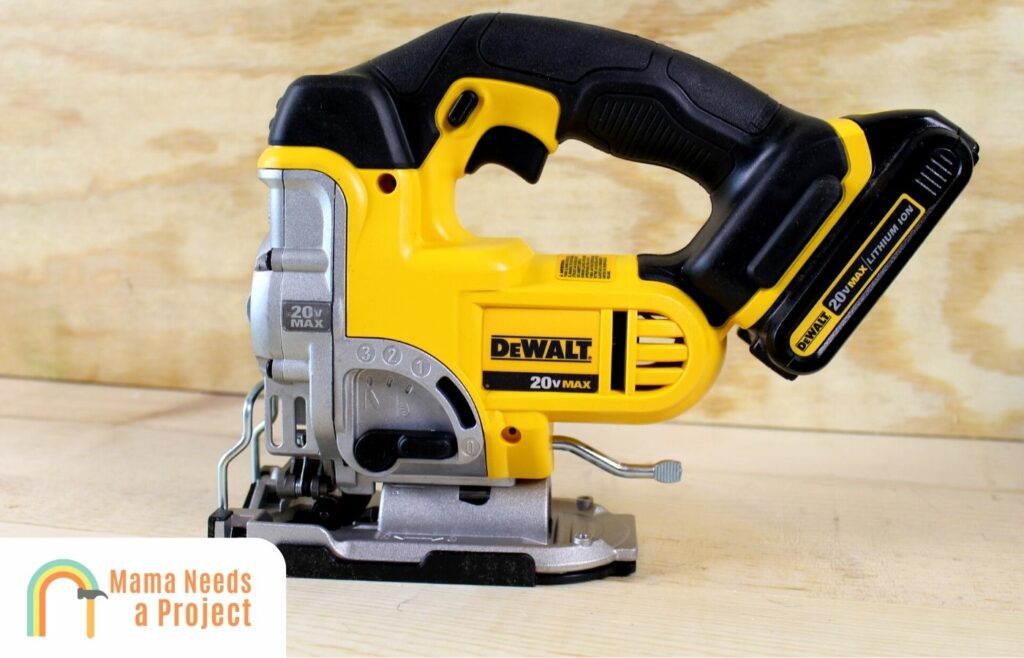
Of course, all the batteries these brands employ are strong enough to power the efficient electric motors modern power tools rely on, but DeWalt’s batteries generally last longer.
But Makita batteries are more interchangeable, and this becomes a big plus once you have a workshop full of Makita tools that all take the same 18V lithium-ion battery.
Warranty
Most Makita power tools come with some kind of multi-year limited warranty, and the same can be said of DeWalt power tools.
Both tool brands also back most of their smaller tools with satisfaction guarantees, so if you don’t like how a hand tool performs, simply return it within the period the guarantee is good for to get your money back.
Generally speaking, the more complex a system is, the longer the warranty will be; the same can be said for particularly expensive tools.
So if you purchase a Makita or DeWalt tool, with a warranty, and it breaks because of a faulty component or because something wasn’t assembled correctly, simply reach out to the company. They’ll tell you where to bring/send the product.
Usually, if they can’t fix the power tool after a few attempts, they’ll replace it.
Lastly, if your power tool is under warranty when it malfunctions, don’t attempt to fix it on your own, and don’t bring it to a third-party repairman. Both actions will void a warranty that would’ve been good otherwise.
Looking for other comparisons? Check out these guides!
DeWalt vs Milwaukee | DeWalt vs Craftsman | Makita vs Milwaukee | Makita vs Ryobi
Makita vs DeWalt Drills
Makita
Makita manufactures a handful of drills and driver-drills, and all of them are powered by an 18V lithium-ion battery.
Their top-shelf drills employ brushless motors that are capable of achieving up to 2,000 RPM and 1,250 in lbs of torque.
All Makita drills have multiple speed settings, so they can be used for a wide variety of tasks that include drilling, fastening, or both.
These drills are compact, lightweight, and ergonomic, so they’re easy to maneuver and can be operated in tight spaces. All have an easy-to-grip rubber grip, and most have a built-in LED light so they can be used in dimly lit areas.
They’re durable tools too, and their inner components are 100% protected from moisture and other erosive elements.
Also, these drills have an output control feature that prevents overheating, overloading, etc., so they’re not only easy to use but safe as well.
If you get a Makita drill in a kit, you’ll most likely get the tool, a battery (or two), the charger, a belt clip, and a carrying case (or bag).
DeWalt
DeWalt currently manufactures angle drills, driver-drills, hammer drills, magnetic drill presses, and specialty drills.
Most of their drills run on a 20V battery, but they also have drills which take a 12V, as well as heavy-duty drills that require a 60V battery.
The vast majority of their drills are powered by brushless motors, and these are capable of delivering upwards of 1,600 RPM.
A top-shelf DeWalt hammer drill can reach upwards of 28,000 BPM, so they’re ideal for numerous tasks that involve either masonry or concrete.
All of these drills—even the heavy-duty ones that run on a 60V battery—are lighter than their immediate competitors, compact, and ergonomic.
Most have an LED light, a rubber grip, and a belt clip, and these easily-overlooked elements make all the difference during certain drilling tasks.
Verdict
Makita and DeWalt cordless drills are well-designed, reliable, and popular amongst professionals and DIYers alike.
But DeWalt batteries are more powerful than the ones Makita employs for their cordless tools, which is a point worthy of consideration if you want a tool that can deliver top-notch performance for a longer period of time.
Also, DeWalt has a wider selection of cordless drills, and their drills are cheaper when stacked against comparable Makita products.
But even though Makita drills are equipped with less-powerful batteries, they boast numerous features that collectively allow them to achieve better results in a shorter period of time, and they’re safer. Plus you get decent bang for your buck if you purchase their tool kits.
Still not sure? Check out the video below!
Makita vs DeWalt Impact Drivers
Makita
Makita manufactures a handful of impact drivers, and you can buy these tools by themselves or as part of a combo kit.
All of their impact drivers are powered by an 18V lithium-ion battery, and nearly all of them have a brushless motor.
Additionally, they’re all lightweight and compact, and most have an LED light built in to ensure operation in dimly lit areas is possible.
Makita impact drivers are ergonomic too, and their inner components are well-protected by durable, sealed housings.
Their top impact drivers boast a range of innovative features, like “Assist Mode” and “Tightening Mode”, which help prevent screw cam-out and cross-threading.
The majority have multiple speed settings, and the most powerful models can deliver upwards of 3,600 RPM along with more than 1,200 in lbs of torque.
Most of the single-tool kits come with two batteries, a charger, a carrying case, and a belt clip, while the combo kits come with all those things plus another tool and battery.
DeWalt
DeWalt’s selection of impact drivers and impact driver kits are larger than Makita’s, and their impact drivers run on 20V batteries, whereas Makita’s run on 18V batteries.
Most DeWalt impact drivers are powered by a brushless motor, and virtually all of them are ergonomic, lightweight, and compact.
The top-shelf models are equipped with LED lights, and they can produce upwards of 3,200 RPM to deliver 1,700 in lbs (or more) of torque.
A kit will include the impact driver, a battery, a charger, a belt hook, and either a carrying case or tool bag.
Verdict
Makita and DeWalt both manufacture high-quality impact drivers, and they’re more similar than different.
That said, DeWalt tools run on 20V batteries that are more powerful, and therefore their motors are stronger. Plus, they’re cheaper.
But you get more in a Makita impact driver tool kit, and their impact drivers have more features that collectively ensure easier and safer operation.
Finally, both brands back their impact drivers with multi-year limited warranties and satisfaction guarantees, so you can try them out for yourself, at no cost, to determine which brand is best.
Check out the video below for even more info comparing these brands!
Makita vs DeWalt Grinders
Makita
Makita manufactures dozens of angle grinders, and the main element that distinguishes these grinders from one another is disc diameter.
Most of their angle grinders are 4-4.5 inch models, but they manufacture 5”, 6”, 7”, and 9” models as well.
The top-shelf grinders run on a powerful 15 AMP motor, and they can achieve upwards of 8,500 RPM, so they remove more material in a shorter period.
Even some 7.5 AMP models can achieve up to 11,000 RPM.
All of them are lightweight and ergonomic, and most are equipped with conveniency features—like switch locks and side handles—to ensure superior maneuverability, precision, and safety.
Plus, the inner components are protected by well-designed housings, so it’s near impossible for sawdust or other dust to get in.
As far as kits go, at present they’re only manufacturing two, and in addition to the tools these kits come with numerous discs, an extra battery, and other accessories.
DeWalt
DeWalt’s selection of angle grinders is nearly double that of Makita’s, and unlike Makita they manufacture a handful of grinders that are equipped with brushless motors and powered by 60V batteries, and these are great for heavy-duty grinding tasks.
They also have 20V models that, while not as powerful as their 60V counterparts, are capable of doing both precision and heavy-duty grinding, which is a main reason why they’re popular amongst professionals and DIYers.
Some are heavier and bulkier than others, of course, but all are ergonomic and well-designed, featuring rubber-grip main and side handles to ensure fantastic maneuverability.
They also employ a range of safety features, like DeWalt’s patented E-Clutch and a kickback brake that’ll stop the wheel and shut down the grinder the moment a pinch, stall, or bind is detected.
Verdict
Unlike the two preceding tool categories, in the grinder category there’s a clear winner and it’s DeWalt.
DeWalt’s selection of grinders is much larger than Makita’s, and most of the grinders are more powerful than any of the Makita models.
Plus, DeWalt manufactures heavy-duty grinders that can remove a lot of material in a short period, even if the material is a dense hardwood or non-ferrous metal.
And since DeWalt grinders offer many of the features Makita grinders boast, Makita grinders are inferior to DeWalt grinders in virtually every meaningful respect.
Of course, considered alone, Makita grinders are still capable, reliable products that are totally worth it, but DeWalt grinders are all-around superior.
Makita Tools Pros and Cons
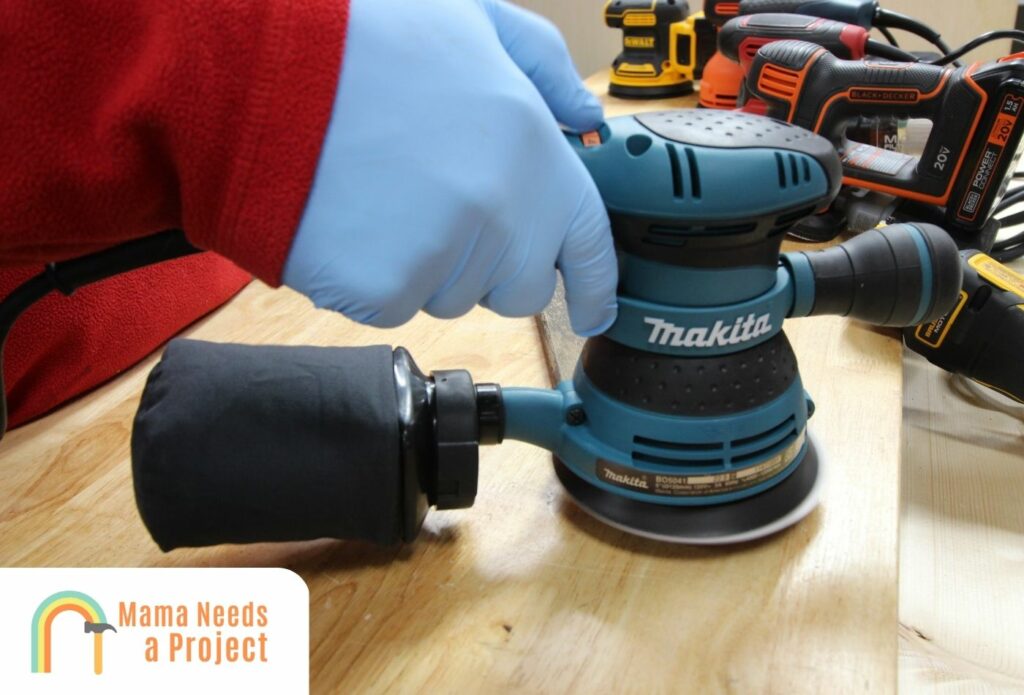
- Pro: Makita tools are designed to be efficient and long-lasting, but they’re also simple and easy to use.
- Pro: Most Makita power tools run on the same 18V battery, so if you have multiple tools you should never be without a charged battery.
- Pro: Their products are backed by comprehensive, multi-year warranties because they take pride in their workmanship.
- Con: These tools aren’t just more expensive than DeWalt products—they’re more expensive than most comparable products.
Looking for other tool comparisons? Check out my Makita vs BOSCH comparison to find out which is best!
DeWalt Tools Pros and Cons
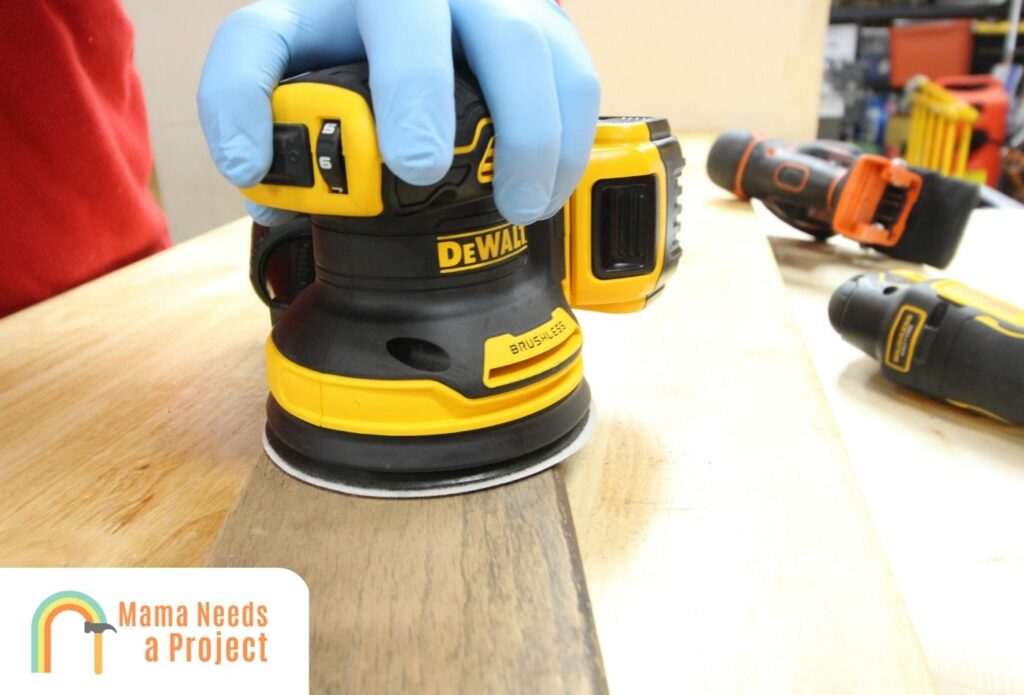
- Pro: DeWalt tools are strong enough to make easy work of heavy-duty tasks, and they resist impact damage well.
- Pro: DeWalt batteries are longer-lasting and more reliable than most of the batteries their competitors are using.
- Pro: DeWalt products are sold in every major big-box hardware store, something that can’t be said for other power tool brands.
- Con: Sometimes DeWalt products have more components than they really need, and these unnecessary components can make them a bit more difficult to operate.
Makita vs DeWalt: Overall Verdict
If you take Makita’s whole product line and compare it to DeWalt’s, the following truths would be apparent immediately:
- DeWalt cordless power tools can operate for longer because they run on more-powerful 20V batteries.
- Both brands manufacture hand tools, corded tools, cordless tools, and other equipment, but DeWalt’s selection is considerably larger.
- Makita products employ more safety features that not only protect yourself and tool but help with achieving precise results.
- Makita products are built with higher-quality components and therefore able to achieve better results consistently.
- DeWalt products are generally cheaper than Makita products (but not always), and sometimes the dollar difference between two comparable products can be $100 or more.
- Makita 18V batteries are much more interchangeable since the vast majority of Makita’s power tools run on them.
Final Thoughts
So which is better, Makita vs DeWalt?
Since both brands manufacture truly top-tier tools, the answer to which is better—Makita vs DeWalt—is really up to you to decide – based on how you plan to use the tools.
If long battery life, for example, is more important to you than overall quality, choose DeWalt.
But if a long-lasting tool that’s going to serve you well for many years is what you’re after, going with Makita is a smart move.
So the next time you have a Makita product in one hand and a DeWalt product in the other while tool shopping, consider quality, features, ease of use, battery power, price, warranty, and the other important factors discussed above. Then you’ll know what to buy!

